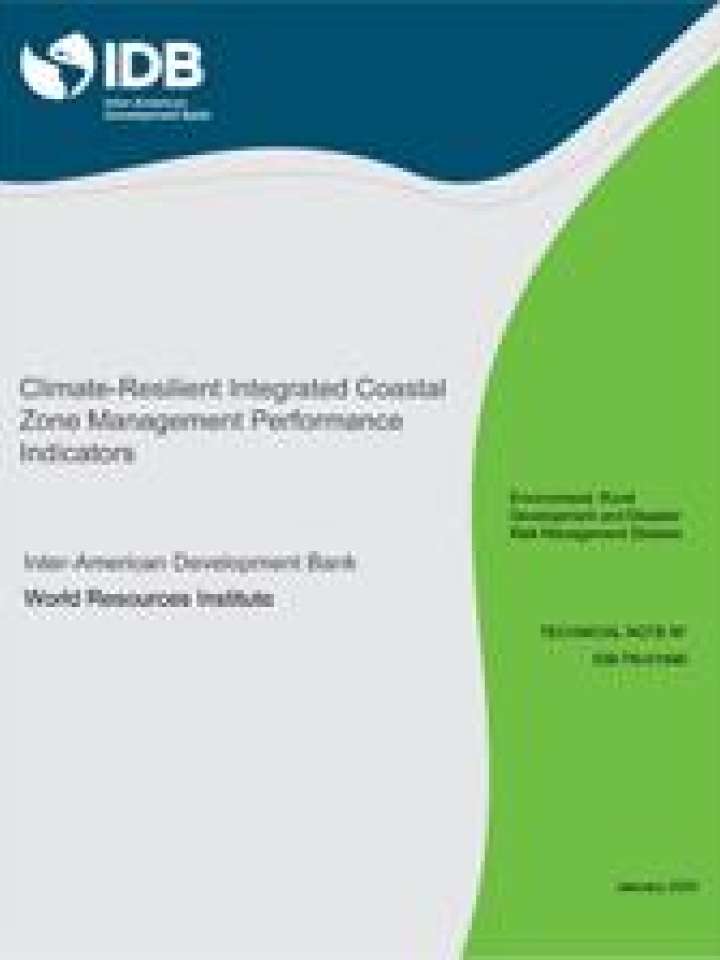Climate-resilient integrated coastal zone management performance indicators
Coastal ecosystems provide a wide variety of goods and services in countries across the Latin American and Caribbean (LAC) countries. To maintain the value that coastal ecosystems provide in a sustainable manner, countries need to implement effective Integrated Coastal Zone Management (ICZM) with an emphasis on managing climate change-related vulnerabilities and risks. ICZM is particularly appropriate for responding to climate change as it takes a holistic approach to risk assessment, planning, and management. It emphasizes long-term sustainable use, resilience-building, and ecosystems-based management, in which the provision of ecosystem services and co-benefits are considered (e.g., the ability of mangroves to protect coastlines, provide habitat, and serve as a sink for carbon). This Technical Notes proposes the indicators of Climate-Resilient ICZM Performance, as a tool to evaluate progress and performance of the LAC countries toward sustainable climate-resilient management of coastal areas. Key aspect if these indicators include: a) the legal and institutional frameworks for ICZM; b) the availability and quality of information; c) the technical capacity to develop and evaluate initiatives to reduce climate-related risk; and d) the sustainable financing for ICZM.
Explore further
